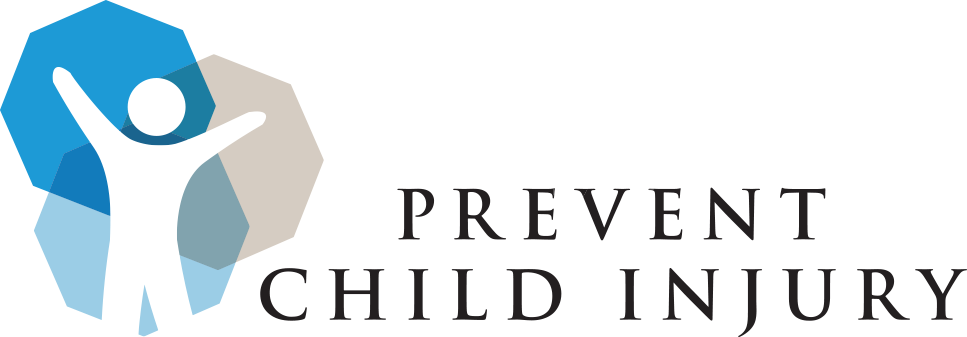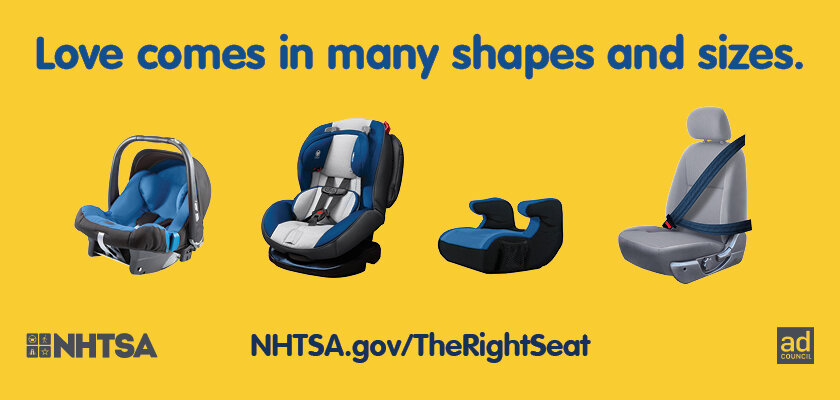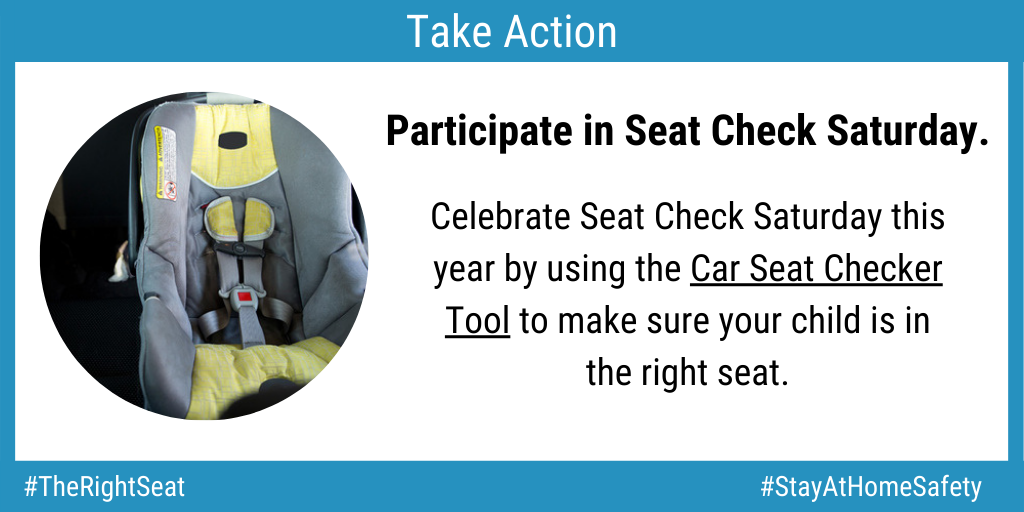September 2020: Child Passenger Safety
/Every year, thousands of children in the United States are injured or killed in car crashes. The use of proper child restraints in the car is critical to keeping children safer if they are involved in a car crash. Child Passenger Safety Week (Sept. 20 - 26) and Seat Check Saturday (Sept. 26) are hosted every year to inform all drivers who are transporting children about the importance of properly restraining children in the car. Participate in Child Passenger Safety Week this year – here are some resources to get you started:
Choose the right seat. With so many options on the market, it can be difficult for parents and caregivers to know which seat to buy for their infant or child.
The Car Seat Checker Tool from Nationwide Children’s Hospital can help parents determine the correct type of car seat for their child.
The Car Seat Finder from NHTSA is an easy-to-use tool that helps parents find the right car seat for their child based on height, weight, and age.
Car Seat Product Listing: 2020 from the American Academy of Pediatrics lists the manufacturers, height and weight limits, and prices of over 200 seats to help parents choose.
This resource from Insurance Institute for Highway Safety covers booster seat use and ratings for booster seats currently on the market.
Install the seat correctly.
These Car Seat and Child Passenger Safety Videos from Children’s Hospital of Philadelphia can help parents install their infant’s or child’s car seat correctly.
We recommend parents have their infant’s or child’s car seat checked for correct installation at an inspection station or a car seat check-up event. Visit the National Highway Traffic Safety Administration website to find a car seat fitting station or a certified child passenger safety seat (CPS) technician nearby.
Don’t move your child “up” to the next seat too soon. Parents should use a child’s current car seat until they reach the maximum height or weight limit listed on the label.
Safe Kids Worldwide’s Car Seat Guide helps parents understand when it’s time to change seats.
Keep kids under 13 years old in the back seat. Even though a child may not need a booster seat anymore, they should still stay in the back. Their bodies have not matured enough to handle the forces that occur in the front seat during a crash (both from the crash and from the airbag). They may protest, but it’s for their safety.
Check to see if the seat has been recalled. Visit recalls.gov to see if your child’s car seat or booster seat has been recalled.
Toolkit Outreach Week: September 21–27
In recognition of National Farm Safety & Health Week, we are hosting an outreach week September 21–27 using our upcoming toolkit on fencing for farm safety. With a child dying from a farm-related injury every three days in the U.S., ag families are putting up fences to protect the next generation of farmers. Our toolkit materials will be available soon, so keep an eye on your inbox for our announcement.
Take Action
Every month, we are promoting a new action that each family can take to keep their children safer while social distancing. This month, we want every family to celebrate Seat Check Saturday by using the Car Seat Checker Tool from Nationwide Children’s Hospital. This tool will help you choose the correct seat for your infant or child based on their age, height, and weight.
Follow along every month for a new action, and share with us how you're preventing child injury in your home!
Coming Up
On Our Twitter Calendar
August 31 - Sept. 6: Baby Safety Month
Sept. 7 - 13: National Preparedness Month
Sept. 14 - 20: Concussion Awareness; National Concussion Awareness Day (Sept. 18)
Sept. 21 - 27: Child Passenger Safety Week; National Seat Check Saturday (Sept. 26); National Farm Safety & Health Week; Toolkit: Farm Safety
Sept. 28 - Oct. 4: Booster Seats
Events
Register for the 2020 Virtual Safe States Alliance Conference! Over the course of the 15 hour-long conference, attendees will have access to live video meetings, recorded sessions with real-time chat discussions, and opportunities to network directly with peers across the country. The conference will be held from September 9–11.
Join the National Peer Learning Team on Child Maltreatment, a collaborative initiative of the Colorado Department of Public Health and Environment and the Program for Injury Prevention, Education and Research (PIPER) at the Colorado School of Public Health, for a webinar on September 15th at 1PM EST. The webinar is titled, “Gun Violence as an Adverse Childhood Experience: Reflections from Research and Practice Perspectives,” and will be presented by Sonali Rajan, EdD, Danielle Kassow, PhD, and Ginny Rauh, ScD. Register here.
Join Kids In Danger (KID) for their third Best Friend Award Conversation on Thursday, September 17th from 6PM - 6:45PM CT. The conversation will feature journalists Rachel Rabkin Peachman from Consumer Reports and Stephanie Zimmermann of the Chicago Sun-Times and they will be covering children’s product safety. Register for free here.
Register for the free Annual FACTS Symposium 2020 on September 23rd from 11AM - 5PM EST. This year’s discussion, titled “The Science of Firearm Injury Prevention: Charting the Path Forward with Data and Innovation,” will feature research on racial disparities in police shootings, extreme risk protection orders (ERPOS), COVID-19 trends, and health provider counseling, among other essential topics.




